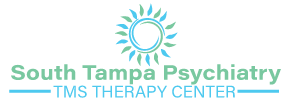Co-occurring disorders occur when a mental health disorder and a substance abuse disorder present themselves simultaneously. People with a mental health disorder and a substance abuse disorder simultaneously have a dual diagnosis.
The other recognized category of co-occurring disorders is when multiple mental health disorders appear together. For instance, someone may struggle with depression disorder and generalized anxiety disorder. This condition is referred to as co-occurring mental health disorders to differentiate it from co-occurring disorders that reference the inclusion of substance abuse in the equation. In contrast, an example of the more common category of co-occurring disorders is the pairing of depression and alcoholism.
Call South Tampa Psychiatry at 866.273.5017 to learn more about our co-occurring disorder treatment program.
Common Signs of Co-Occurring Disorders
Before diving into five of the most common signs of co-occurring disorders, you may be wondering what mental health disorders are involved in dual diagnoses. The mental health disorders that most often appear in a dual diagnosis are:
- Anxiety disorders
- Depression
- Bipolar disorder
- Post-traumatic stress disorder
- Eating disorders
The symptoms of each disorder can differ, but there are five common signs that they share.
1. Employment Trouble
People with a single mental health disorder or substance abuse disorder often struggle to maintain a healthy routine. Maintaining work and life responsibilities with a dual diagnosis is even more difficult. People with a dual diagnosis often struggle to keep working, display absenteeism, or hop from job to job.
2. Relational Problems
Co-occurring disorders strain relationships. This is particularly true in cases that include specific mental health disorders like anxiety and depression. People struggling with co-occurring disorders may have their entire social circles upended.
3. Financial or Legal Issues
Addiction alone can often result in financial or legal issues. That stems from the cost associated with the upkeep of addiction alongside the fact that many drugs are themselves illegal. These obstacles become even harder to manage with the presence of a mental health disorder.
4. Mood Swings
Mood swings are already part and parcel of many mental health disorders. In light of the first three signs overviewed earlier, any of those issues are likely to cause or compound mood swings. Life is liable to feel in disarray for people with a dual diagnosis. Mood swings naturally become part of the territory amid so much chaos and difficulty.
5. Erratic Behavior
Erratic or sudden changes in behavior are yet another sign that your loved one may have a co-occurring disorder. The territory of a dual diagnosis often includes anger, aggression, defensiveness, and a host of other intense emotions. This, in turn, feeds behavior that may become increasingly erratic as someone’s life spins out of control due to addiction and mental health problems.
Treating Co-Occurring Disorders
Treatment for dual diagnosis or co-occurring mental health disorders primarily involves therapy. The best setting for ongoing treatment is residential as compared to outpatient. That is because residential, often called inpatient treatment, provides constant monitoring and care to support holistic recovery and transformation.
Common therapies used to treat a dual diagnosis include cognitive-behavioral therapy and dialectical behavioral therapy. Many addiction and mental health providers also specialize in more experiential forms of therapy such as art therapy, music therapy, equine therapy, or nature therapy.
Ultimately, the key to treating co-occurring disorders is a holistic protocol that addresses both disorders simultaneously. For too long, addiction treatment providers attempted to focus on dealing with each disorder in isolation. This form of treatment rarely produced positive results and has largely been abandoned in favor of a comprehensive, dual diagnosis approach.
Access Healing at South Tampa Psychiatry
South Tampa Psychiatry is here to support your loved one in overcoming their co-occurring disorder. Reach out to 866.273.5017 to connect them to the care and support they need to begin recovery.







